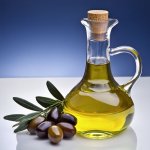I've recently become fascinated with the nuances of cooking oils, specifically Greek olive oil, and I'm curious about how others go about selecting the right one for their cooking needs. With its renowned flavor profile and health benefits, Greek olive oil is a staple in my kitchen. However, with so many varieties and flavor strengths (from robust to mild), I often find myself overwhelmed by the choices.
I have a great olive oil that I use as a finisher or to put on salad. I love the flavor so much. I only have a small quantity, though. So, I want to preserve it. In other words, I don't want to use it for cooking, I think it will ruin it.
How do I really choose a Greek olive oil to cook with?

I have a great olive oil that I use as a finisher or to put on salad. I love the flavor so much. I only have a small quantity, though. So, I want to preserve it. In other words, I don't want to use it for cooking, I think it will ruin it.
How do I really choose a Greek olive oil to cook with?




